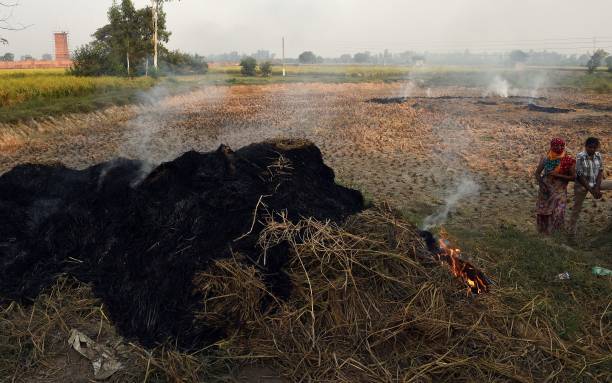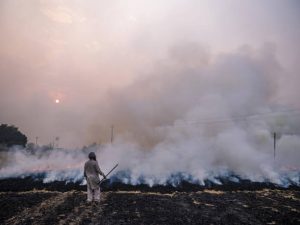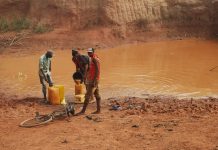
Maryam Diallo
As the harmattan season begins, scientists and environmental stakeholders in Kaduna State have urged residents to adopt proactive measures to prevent fire outbreaks and other climate-related incidents that often occur during the dry season.
The Climate Change and Environment Desk of the Interfaith Mediation Center (IMC), in collaboration with the African Climate Reporters (ACR) and a team of scientists and disaster management experts, has issued a strong warning against bush burning and other unsafe practices that heighten the risk of fire during the harmattan.

In a statement signed by the IMC National Coordinator, Samson Auta, and made available to journalists in Kaduna on Thursday, residents,particularly hunters,were cautioned to avoid using fire in forested areas.
Auta noted that strong seasonal winds can quickly spread flames, leading to widespread and uncontrollable fires.
He also advised the public to handle fire and lighted objects with extreme care, both at home and in workplaces, to minimize the risk of fire disasters.
Speaking on domestic fire safety, the Director of ACR and Climatologist at the College of Health Science and Technology, Kaduna, Comrade Nurudeen Bello, called on women and household heads to be vigilant in the kitchen.
He emphasized the need for proper handling and maintenance of cooking gas cylinders, kerosene stoves, and other fire-prone appliances to prevent avoidable accidents.
In a related development, the Network of Peace Journalists (NPJ) appealed to the Kaduna State Fire Service to intensify its public awareness campaigns—both online and offline to educate residents on fire prevention measures during the harmattan.
The NPJ Team Leader, Ibrahima Yakubu, further urged the Kaduna State Government to equip the State Emergency Management Agency (SEMA) with adequate resources to strengthen disaster response efforts and enhance fire safety education in markets, schools, homes, and other public spaces.


















